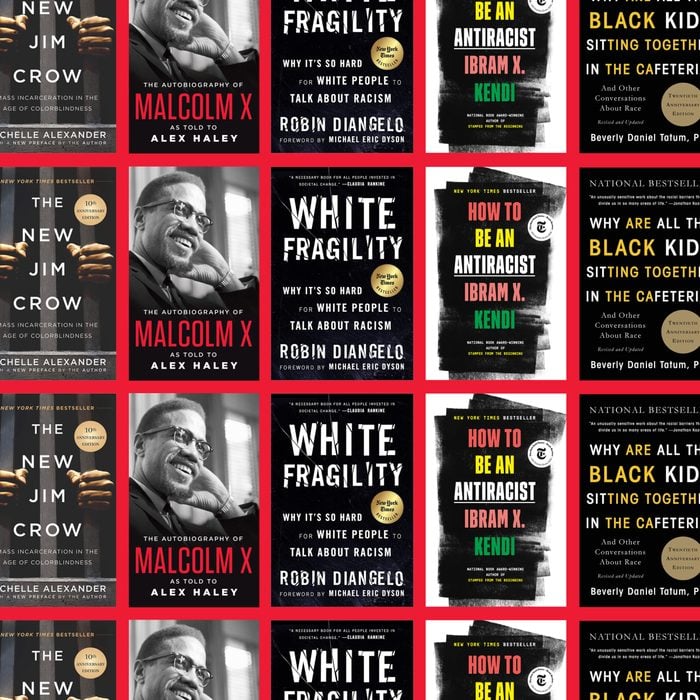
Anti-racism books that make a difference
When it comes to understanding race and social justice in this country, authors of the most prominent books about racism have a message: Skip the announcements about your good intentions and instead settle in to do the hard work. Investing in our own understanding of systemic racism allows us to reflect on our own behavior and learn to do better. It’s also important to realize this work is not the responsibility of any one race—it must be shared by everyone who wants a better and more fair country. The best books on race, culture, and allyship are a good place to start if you truly want to understand the history and underlying context of racism in America.
On this list, you’ll find thought-provoking, informative nonfiction books by a variety of scholars, historians, and social justice writers, including well-known Black authors and female authors. These works have won numerous awards—from Pulitzers to National Book Critics Circle awards—or sparked national conversations that have changed the way we look at certain aspects of this topic, and they are all definite must-reads.
You can purchase these titles at Bookshop.org, an online bookstore with a mission to financially support local, independent booksellers, and do your part to support an independent and/or Black-owned bookstore in the process.
Join the free Reader’s Digest Book Club for great reads, monthly discussions, author Q&As and a community of book lovers.
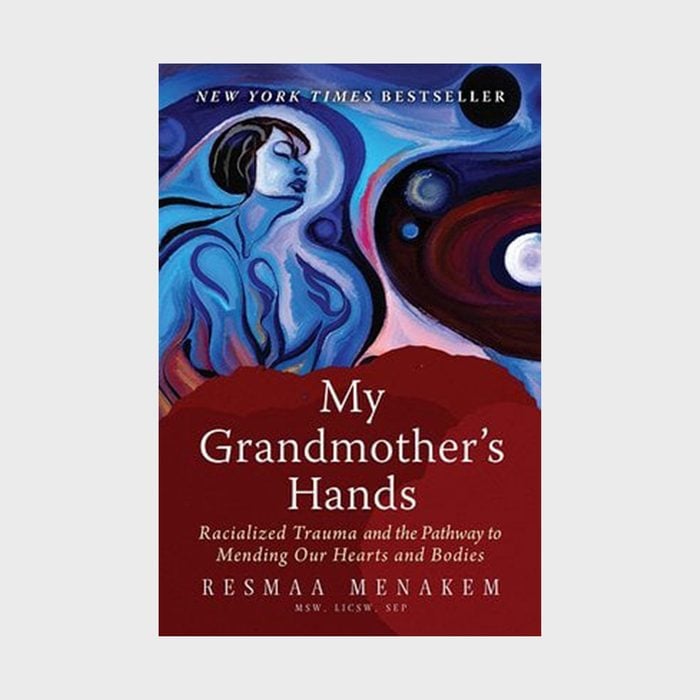
1. My Grandmother’s Hands: Racialized Trauma and the Pathway to Mending Our Hearts and Bodies by Resmaa Menakem (2017)
As a young boy, Resmaa Menakem would sit with his grandmother, rubbing her thickened, pained hands to give her some relief. She’d explain how her hands got that way from picking cotton while working in the fields, starting at age four. These experiences launched the author’s awakening of how America’s racial divisions result in generational trauma. What makes this one of the more intriguing books about racism is the way that Menakem, a therapist, explains how the daily pain of discrimination has a cumulative, damaging effect on the minds and bodies of people of color. He notes that only when we all acknowledge how the hue of our skin influences everything—from the decisions we make to the paths open to us—and confront white supremacy head-on can America begin healing. If you’re looking to talk to children about race, some of these nonfiction books for kids will help start that conversation.
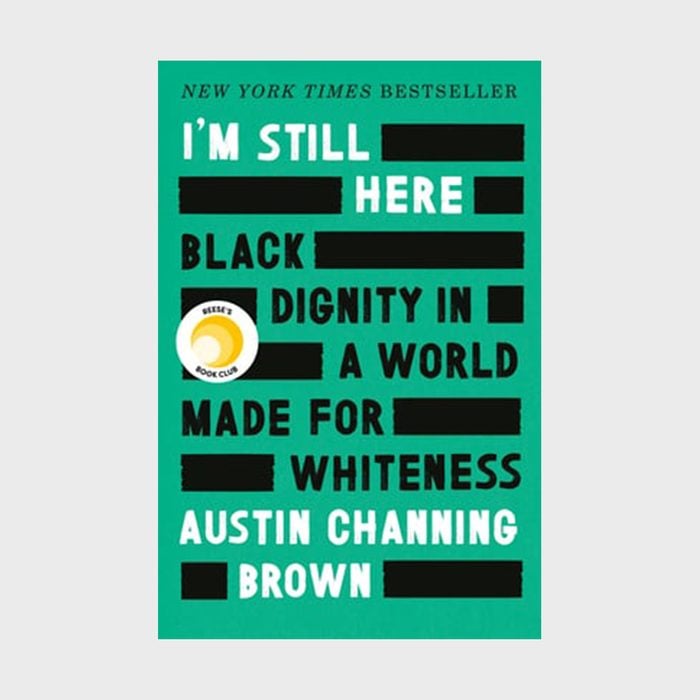
2. I’m Still Here: Black Dignity in a World Made for Whiteness by Austin Channing Brown (2018)
If you’re not sure what the term microaggressions means or what it’s like to experience them as a Black woman, author Austin Channing Brown, who’s also the resident director and multicultural liaison for Calvin College, lays it out for you in her book. She learned that her parents chose her name, in part, so that potential employers would think she was a White man. This story follows the author’s journey to self-worth as she writes about her Christian, middle-class upbringing, her attendance in predominantly White schools, and the jobs in which she was the only or one of the few Black women in her workplace. Though published in 2018, it catapulted to best-seller status after the 2020 murder of George Floyd.
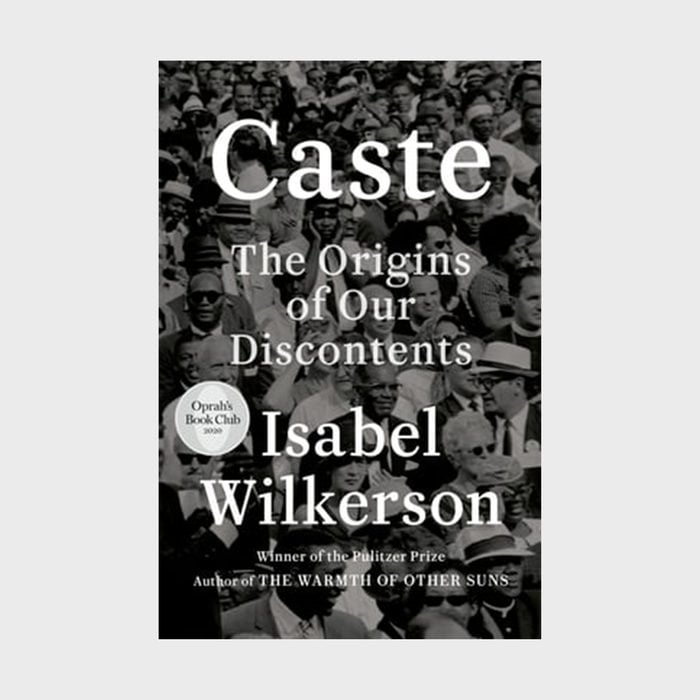
3. Caste: The Origins of Our Discontents by Isabel Wilkerson (2020)
Pulitzer Prize winner Isabel Wilkerson follows up her highly acclaimed book The Warmth of Other Suns with this insightful look at the role of terror and cruelty in creating and maintaining America’s racial hierarchy. Earning accolades from the Los Angeles Times, the National Book Critics Circle, and many others, this meticulously researched book is also one of Oprah’s Book Club picks. In it, Wilkerson compares America’s caste system to the “unseen skeleton” in an old house—and says it’s as central to its inner workings as the studs and joists we can’t see inside buildings we call home. She makes the case that although people will continue to be born into superior or subordinate castes, we must respond differently once awakened to this inequity. Oprah’s Book Club, by the way, is just one of the online book clubs that will boost your reading life.
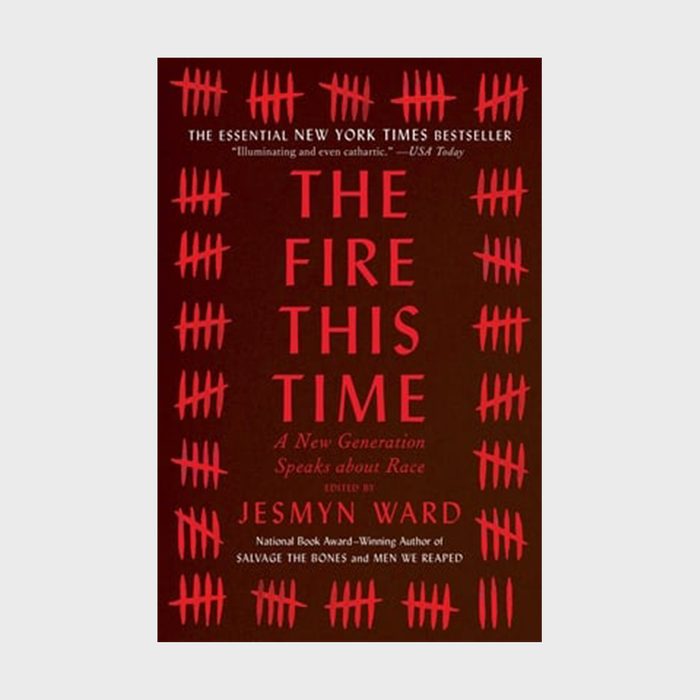
4. The Fire This Time: A New Generation Speaks About Race by Jesmyn Ward (2017)
Novelist and two-time National Book Award winner Jesmyn Ward compiles an anthology of searing essays and poems about race from some important contemporary voices, including Carol Anderson, Jericho Brown, Edwidge Danticat, Kevin Young, Claudia Rankine, and Honorée Jeffers. Positioned as a response and follow-up of sorts to James Baldwin’s 1963 classic The Fire Next Time, this book about racism acknowledges the significant progress that has been made in the decades since that seminal book was written but notes that we are indeed a long way from a “post-racial society” and lays out a vision for a better future.
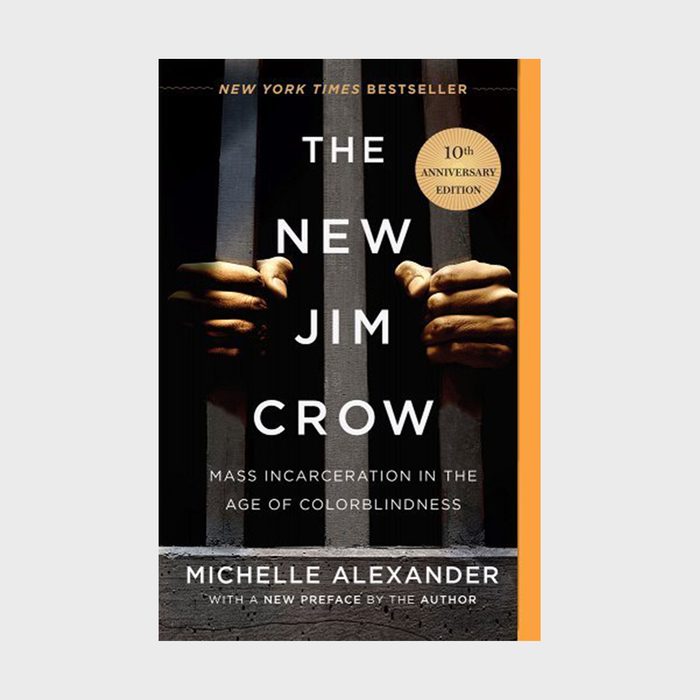
5. The New Jim Crow: Mass Incarceration in the Age of Colorblindness by Michelle Alexander (2010)
This book is key to understanding the oppressive judicial system that has used the War on Drugs to target and oppress Black men and communities of color with almost surgical precision. Legal scholar Michelle Alexander lays out in intricate detail how the criminal justice system functions as a contemporary system of racial control and relegates millions to permanent second-class status. She argues that President Barack Obama’s election notwithstanding, we are far removed from an era of colorblindness. Our racial caste system hasn’t ended; it’s merely been redesigned. Alexander makes it clear that nothing short of a nationwide social movement will remake our unjust criminal justice system. By the way, here’s why you should stop saying “I don’t see color.”
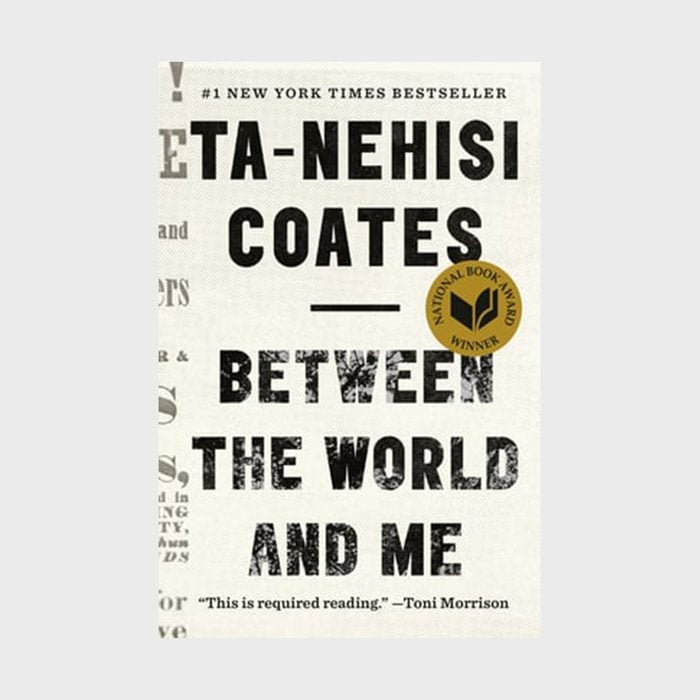
6. Between the World and Me by Ta-Nehisi Coates (2015)
This anti-racism book has been called the bible for the Black Lives Matter movement. In it, journalist and McArthur Genius Grant recipient Ta-Nehisi Coates creates a new framework for understanding how the bodies of Black women and men have been exploited through slavery and segregation and how today’s systems widen the gulf between people and exacerbate tensions. In this blend of history and memoir, penned as a loving letter and warning to his adolescent son, Coates uses his own coming-of-age journey to illuminate our history, confront our present, and offer a road map for living within a system that is, by design, unfair.
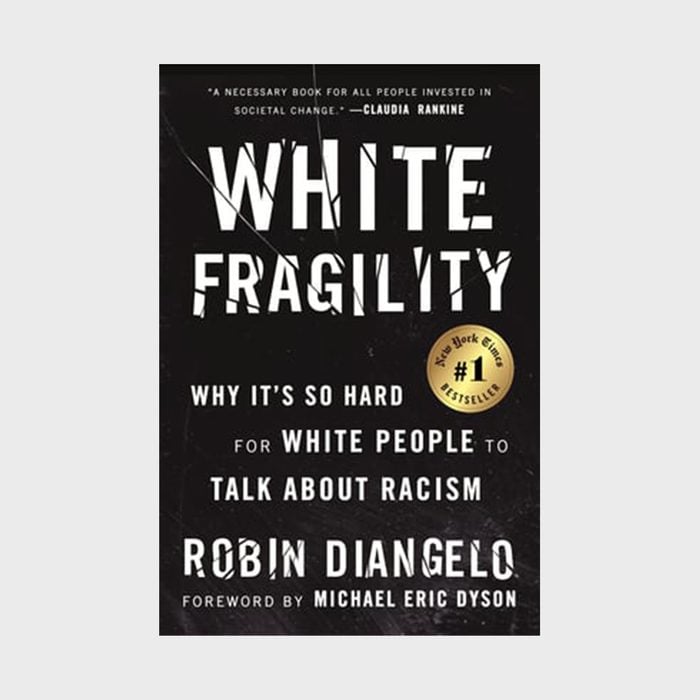
7. White Fragility: Why It’s So Hard for White People to Talk About Racism by Robin DiAngelo (2018)
In this New York Times best seller, sociologist and anti-racist academic Robin DiAngelo explores how White people react when their assumptions about race are challenged and why those reactions make progress so difficult. DiAngelo helps us understand that racism as a practice is not restricted to “bad people” and defines “White fragility” as a state in which even a minimum amount of racial stress becomes intolerable, triggering defensive moves like anger, guilt, silence, and a desire to flee the stress-inducing situation. Whether intended or not, these behaviors curtail honest discussions and ensure that nothing ever changes. She explores how people can engage more constructively and be true allies in the fight against racism.
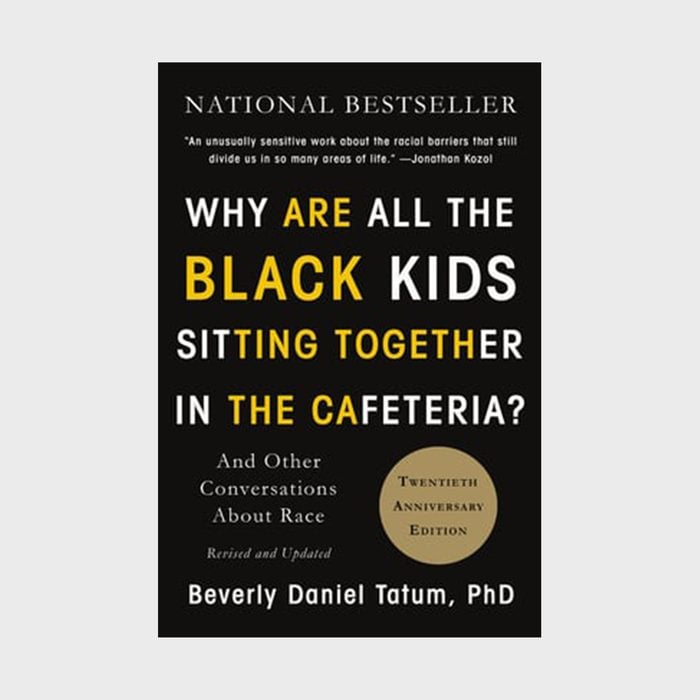
8. Why Are All the Black Kids Sitting Together in the Cafeteria? by Beverly Daniel Tatum (2017)
Psychologist and educator Beverly Daniel Tatum first published this best-selling book about racism more than 20 years ago, and this 2017 update adds to the conversation with more recent events, including the elections of Barack Obama and Donald Trump and the emergence of the Black Lives Matter movement. Today, as the national conversation about race becomes increasingly polarized and tensions continue to flare, the psychology of racism is even more relevant. In this book, Tatum argues that self-segregation in high school can only be fixed if we enable communication across racial and ethnic divides. That “straight talk” may be difficult, but it’s essential if we have any hope of moving forward, and that type of practical advice is part of what makes this a great book for teens and adults.
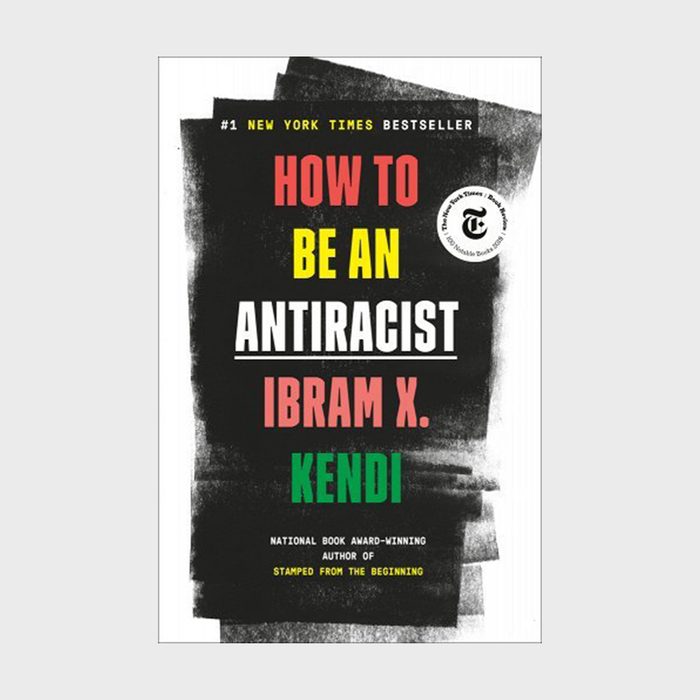
9. How to Be an Antiracist by Ibram X. Kendi (2019)
“I’m not the least bit racist” is a common rebuttal to being identified as a racist. But even if that statement is 100 percent true, it’s still insufficient, argues author Ibram Kendi, director of Boston University’s Center for Antiracist Research. Not being racist is a neutral stance, and in the fight for a more fair world, neutrality isn’t good enough. We must choose a side and lean into the work of anti-racism, actively attempting to dismantle the systems that have promoted inequality and inequity for far too long and taking a long, hard look at ourselves to understand how our implicit biases affect our thoughts and actions.
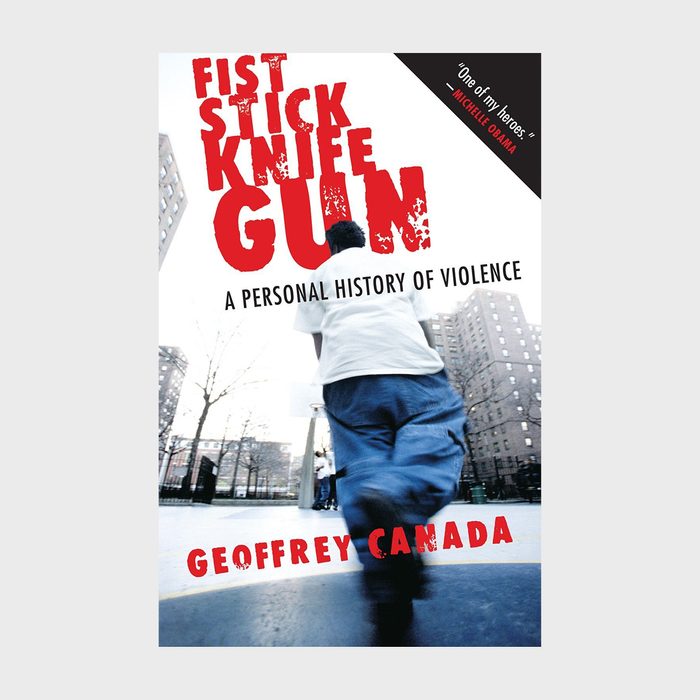
10. Fist, Stick, Knife, Gun: A Personal History of Violence by Geoffrey Canada (2010)
When educator and activist Geoffrey Canada talks about transforming kids and the spaces around them, he speaks from experience. As a young boy growing up in the South Bronx, he learned that the codes and rituals of the neighborhood streets were ranked in ascending orders of violence: fist, stick, knife, and gun. His memoir of the same name (which was later adapted into a nonfiction graphic novel) points the way to saving all the children who grew up like him, in abject poverty and surrounded by violence. His formula is simple: In order to change these children, you must change their environments and teach them to change their own worlds.
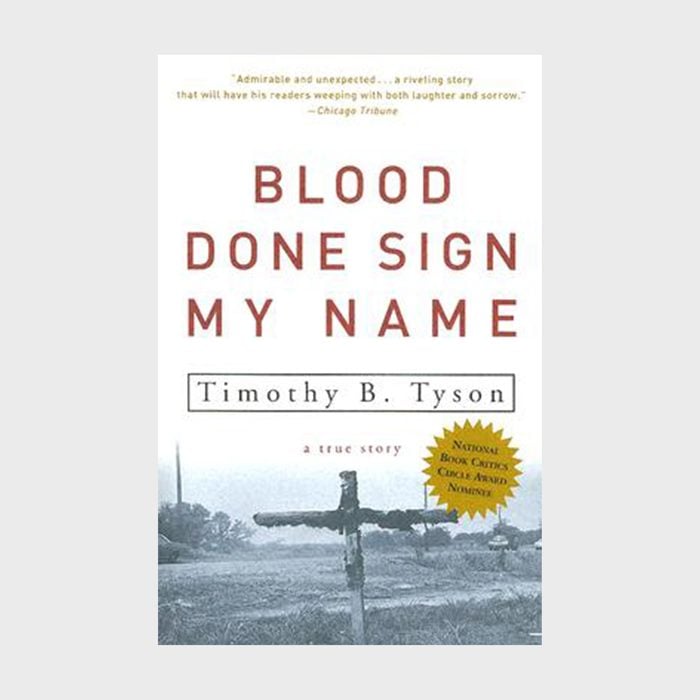
11. Blood Done Sign My Name by Timothy B. Tyson (2004)
This memoir recounts author Timothy Tyson’s childhood growing up as the son of a White liberal Methodist minister in a small North Carolina town riven by conflict and racism. As a historian, Tyson deconstructs the revisionist history of the Civil War, which seeks to recast treason as patriotism and whitewash the brutality of slavery. Beautifully written and, at times, laugh-out-loud funny, Blood Done Sign My Name is one of the most powerful meditations on race in America you’ll ever read. It goes a long way toward providing an understanding of the uniquely American struggle for racial equality.
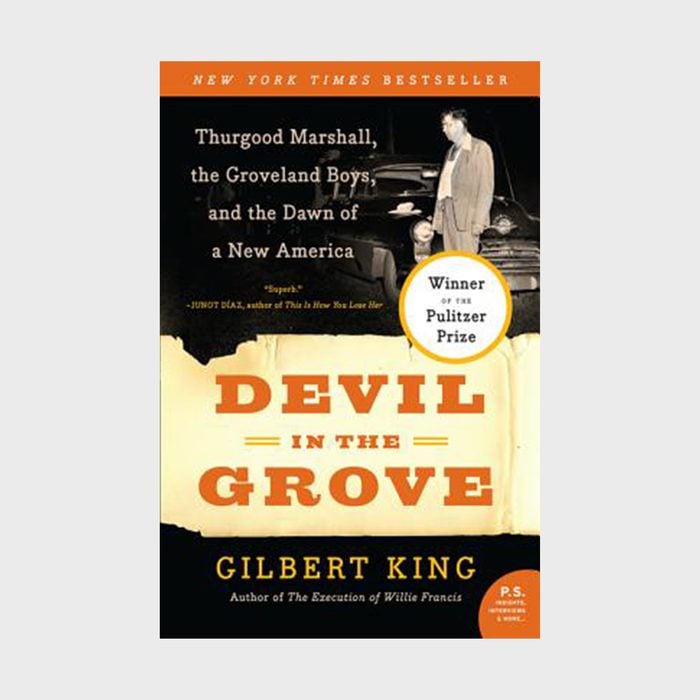
12. Devil in the Grove: Thurgood Marshall, the Groveland Boys, and the Dawn of a New America by Gilbert King (2012)
Before he was a Supreme Court Justice or the Solicitor General or the lead attorney in Brown v. Board of Education, Thurgood Marshall was a fearless courtroom attorney who risked his life to defend Black men accused of horrific crimes and changed the course of the Civil Rights Movement. Winner of the 2013 Pulitzer Prize for General Nonfiction, Devil in the Grove by Gilbert King recounts Marshall’s time in Florida defending four young Black men accused of raping a 17-year-old White woman. This compelling book focuses on an important yet often-overlooked moment in American history and the case that forged Marshall’s legacy as Mr. Civil Rights.
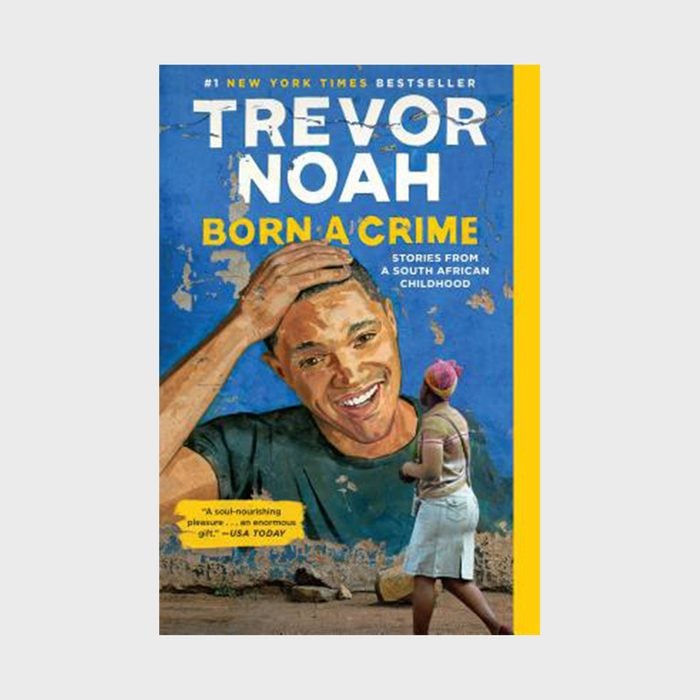
13. Born a Crime: Stories From a South African Childhood by Trevor Noah (2016)
On its face, Born a Crime is the story of a dirt-poor, mischievous young boy who makes good. On a deeper level, it paints a poignant and sometimes painful picture of a biracial man struggling to find his place in a society where his very existence is a crime. Comedian and Daily Show host Trevor Noah offers hilariously brilliant insights into the world of apartheid as a construct at odds with itself and bound to collapse under its own nonsensical weight. In that respect, it is a reflection of racism in America, and despite that, it is also one of the funniest books of all time.
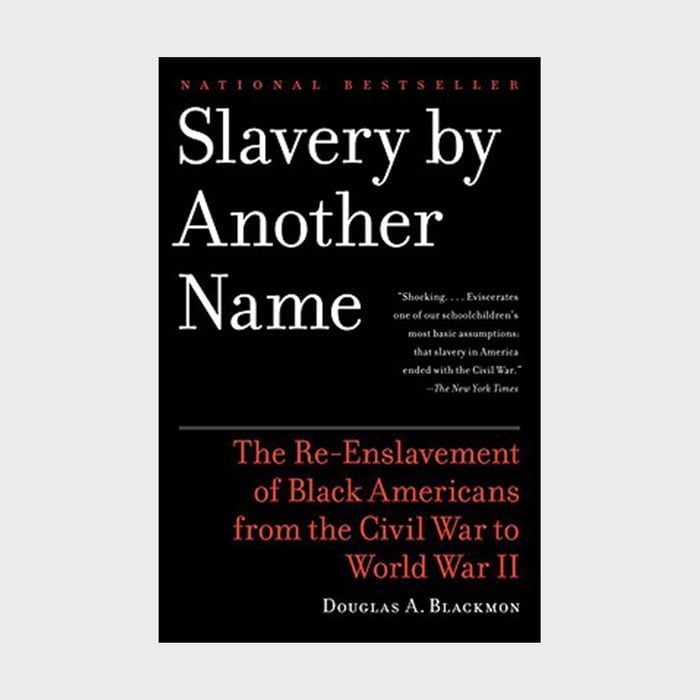
14. Slavery by Another Name: The Re-Enslavement of Black Americans from the Civil War to World War II by Douglas A. Blackmon (2008)
Douglas A. Blackmon brings to light a shameful and little-known chapter in our country’s history: the Age of Neoslavery that thrived from the aftermath of the Civil War through the dawn of World War II. Slavery by Another Name uses the lost stories of slaves and their descendants who tasted freedom only to be re-enslaved again in a cruel system of laws and regulations that reinstituted slavery under another name. Blackmon also calls out the businesses and enterprises that profited from Neoslavery. Ultimately, the book illuminates both the tragedy of holding human chattel and the corruption that flows from such inhumanity. These podcasts about race provide another way to expand your knowledge of this subject.
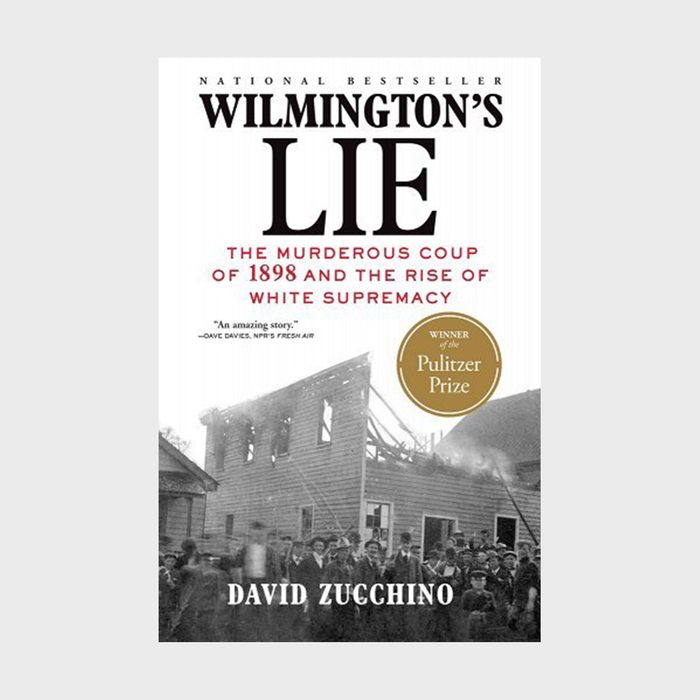
15. Wilmington’s Lie: The Murderous Coup of 1898 and the Rise of White Supremacy by David Zucchino (2020)
David Zucchino, a contributing writer and foreign correspondent for the New York Times, received the Pulitzer Prize for General Nonfiction for this riveting account of America’s first and only armed overthrow of a legally elected government. The book recounts the bloody campaign of violence and intimidation by White supremacists of a thriving Black middle class and a local government that included Black aldermen, police officers, and magistrates. This travesty is key to understanding that the post-Reconstruction era was a land of broken promises and brutal oppression for African Americans.
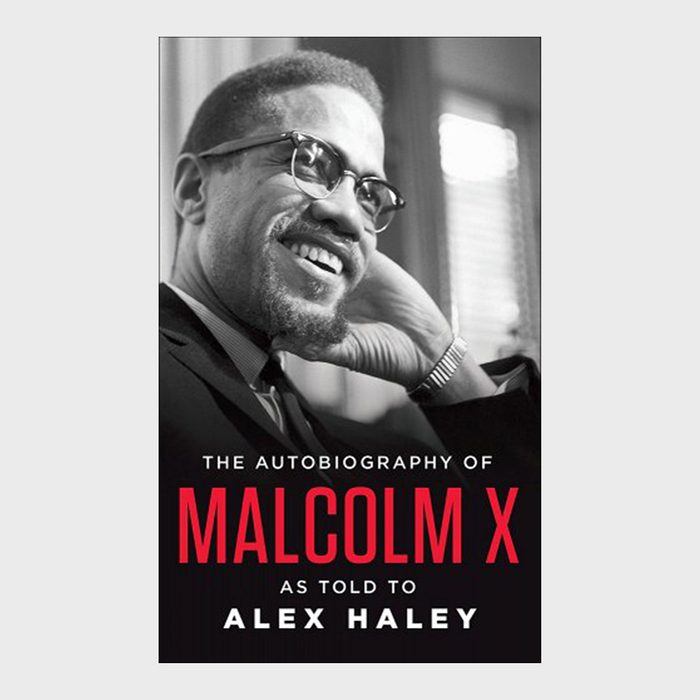
16. The Autobiography of Malcolm X by Alex Haley and Malcolm X (1965)
In this book, civil rights activist and Muslim leader Malcolm X recounts his journey from a prison cell to Mecca, describing his transition from hoodlum to minister. And he pulls off the perfect hat trick as he clearly spells out the injustice and anger that results from racism in America while being brutally honest about his own failings and misgivings. This autobiography defines both the movement and the evolution of Malcolm X from “the angriest Black man in America” to someone who recognized the brotherhood of all mankind. It is essential reading for moving beyond empathy and actually seeing racism through the eyes of those most affected by it.
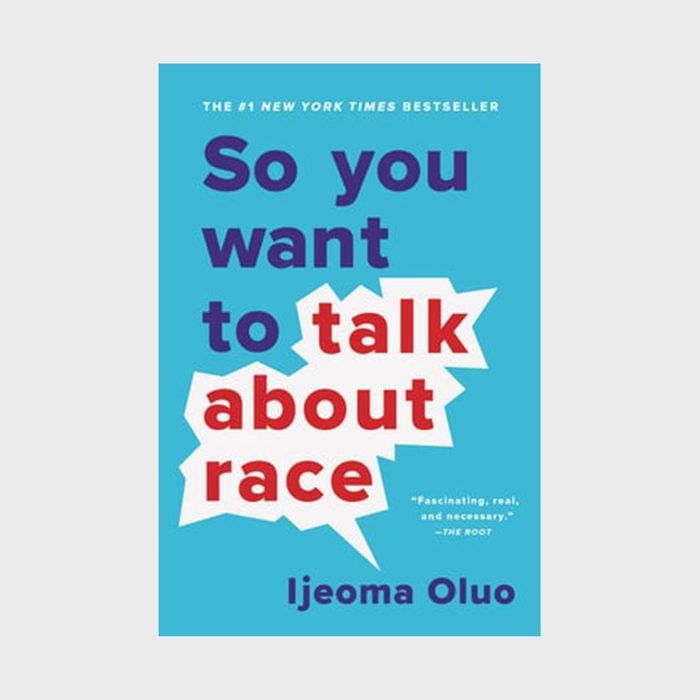
17. So You Want to Talk About Race by Ijeoma Oluo (2018)
While acknowledging that talking about race is difficult, Ijeoma Oluo has written a tutorial for anyone who wants to go there, nonetheless. In frank, blunt language, So You Want to Talk About Race guides readers of all races through everything from intersectionality to affirmative action to White privilege. It is the only way we can have honest, productive conversations about race and racism, she asserts. Her book gets to the core of how racism has infected almost every aspect of American life and dismantles the grievances and blind spots that impede clear, constructive dialogue. The New York Times best seller also helps readers understand the psychology of racism and prejudice.
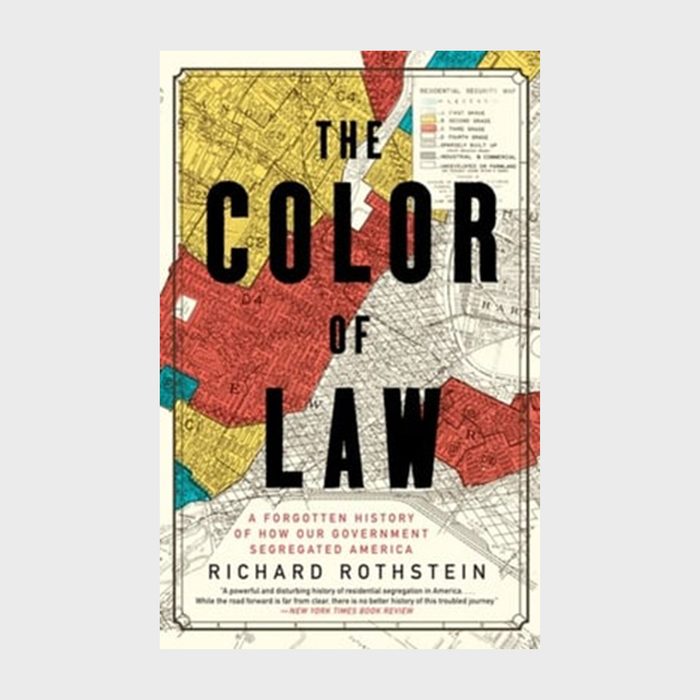
18. The Color of Law: A Forgotten History of How Our Government Segregated America by Richard Rothstein (2017)
This compassionate and scholarly work diagnoses the past policies and prescriptions that led to systematic racial segregation and the disparities we still find in many of the nation’s metropolitan areas today. The United States did not arrive at this current moment in time by happenstance. In The Color of Law, Richard Rothstein’s meticulous research lays bare the specific policy choices and resources that were used to get us here and asserts that government resources are essential if we are ever going to change course. As a research associate at the Economic Policy Institute and a fellow at the NAACP Legal Defense Fund’s Thurgood Marshall Institute, he certainly knows what he’s talking about, and this book about White privilege highlights inequities you may never have noticed.
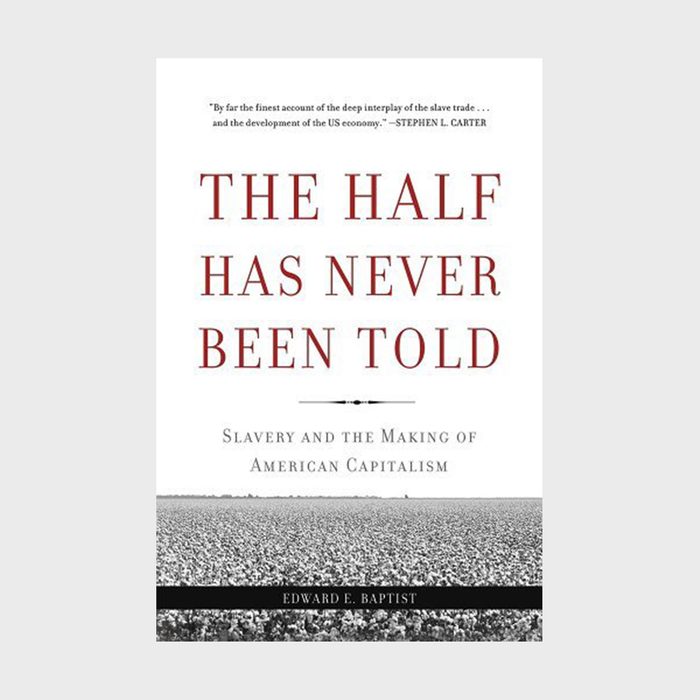
19. The Half Has Never Been Told: Slavery and the Making of American Capitalism by Edward E. Baptist (2016)
Historian Edward Baptist’s The Half Has Never Been Told explains how the expansion of slavery in the first eight decades after American independence drove the evolution and modernization of the United States. In the span of a single lifetime, the South grew from a narrow coastal strip of worn-out tobacco plantations to a continental cotton empire, and the United States grew into a modern, industrial, and capitalist economy. Told through intimate slave narratives, plantation records, newspapers, and the words of politicians, entrepreneurs, and escaped slaves, this award winner offers a radical new interpretation of American history.
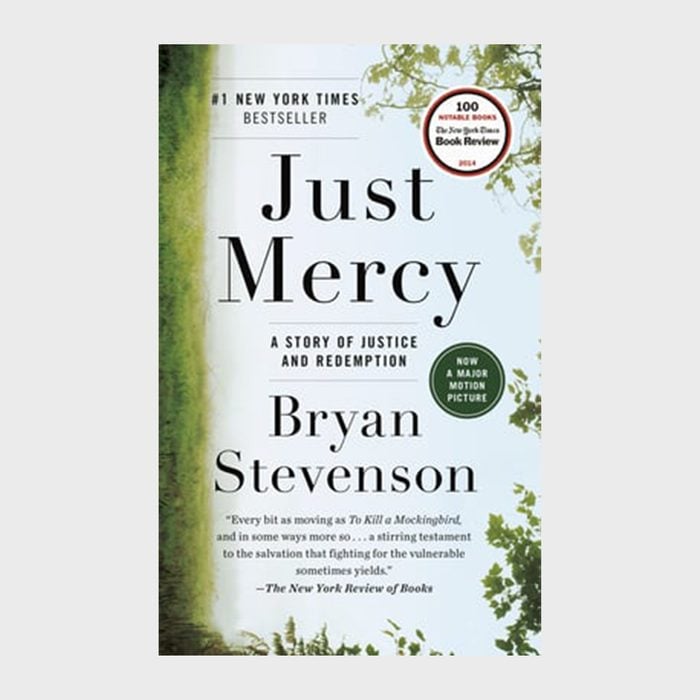
20. Just Mercy: A Story of Justice and Redemption by Bryan Stevenson (2015)
In 1989, Bryan Stevenson founded the Equal Justice Initiative, a legal practice dedicated to defending those most desperate and in need: the poor, the wrongly condemned, and women and children trapped in the farthest reaches of our criminal justice system. Just Mercy recounts the organization’s beginnings through a successful campaign to challenge the cruel practice of sentencing children to die in prison. Central to Stevenson’s understanding of mercy and justice was the case of Walter McMillian, a Black man who was not only sentenced to die for a notorious murder he insisted he didn’t commit but placed on death row in 1987 even before the trial began. “Proximity has taught me some basic and humbling truths, including this vital lesson: Each of us is more than the worst thing we’ve ever done,” said Stevenson, explaining why he does this work and never gives up hope. Next, check out the best biographies that can also expand your views of the world.
